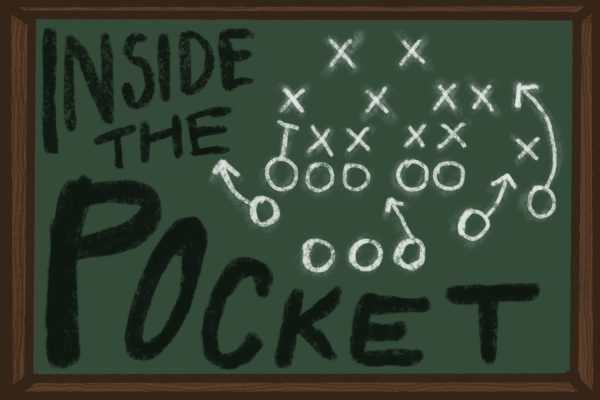Is Tom Brady cheating again? Long after the days of “Deflategate” and “Spygate,” Brady can’t seem to escape the constant discussion of whether or not he’s playing by his own rules.

The seven-time Super Bowl champion spent 20 seasons as the New England Patriots’ quarterback before finishing his career with three seasons with the Tampa Bay Buccaneers.
As his career dwindled, Brady reached a deal with Fox Sports in May 2022 to become a lead NFL game analyst once he retired — which he did in February 2023. The following year, Las Vegas Raiders owner Mark Davis announced an agreement for Brady to become a minority owner of the Raiders.
However, this purchase wasn’t finalized until October 2024, when the 32 NFL owners unanimously approved Brady’s purchase.
And now, one season into Brady’s dual role, more controversy is arising. During the Week 2 Monday Night Football matchup between the Raiders and the Los Angeles Chargers, the broadcast showed Brady in the Raiders’ booth with Las Vegas coaching staff wearing a headset.
Additionally, Raiders offensive coordinator Chip Kelly consults Brady multiple times a week. They review film. They talk game plans. At this point, Brady isn’t just blurring lines, he’s coaching. Raiders head coach Pete Carroll later responded to the reports saying that while he and Kelly speak often with Brady, they don’t directly discuss game plans.
The issue deepens when you track which games Brady calls.
Deemed a “ridiculous conflict of interest” by one critic, Brady covered the Commanders-Giants game during Week 1 of the season, and the Commanders played the Raiders during Week 3. Furthermore, this past Sunday, Brady called the Cowboys-Bears game — the Raiders will face the Bears in Week 4.
Coincidence? Maybe. But why was Brady at that Raiders game? Was he there as an NFL analyst doing some homework? Was he there as a minority owner checking up on his team? Or was he there as coach in every sense, except the name?
When the NFL approved Brady’s purchase of the Raiders, they established the “Brady Rules.” These included bans from visiting team facilities, attending production meetings, and notably criticizing the referees or other teams during broadcasts. These rules demonstrate the league’s understanding and recognition of a conflict, even as it seems to be ignoring the concerns that created these rules in the first place.
It’s hard to understand why the owners even allowed Brady to take on both roles. Are they aware of the advantage they may have just given Brady’s Raiders?
Brady’s situation is a case study for a larger issue: the tangled relationship between the NFL and the networks that cover it.
Networks pay the NFL billions of dollars every year to broadcast their games, and consequently, the networks seem incentivized to promote the NFL and not to speak too harshly about the league. The networks and the league have a symbiotic relationship that leads us to question the objectivity of the sportscasters the networks employ.
You have to wonder if the analysts who work for these media organizations sideline their priority as impartial reporters to boost the league. Not only does the networks’ fear of the NFL policing criticism about their league undermine journalists’ credibility, but it also brings into question the integrity of the entire league itself.
For example, Bob Costas, a long-time, respected sports journalist for NBC, who was slated to cover the 2017 Super Bowl before stepping away from his role covering the NFL, was pulled last minute from the broadcast due to his comments about concussions and brain damage in the NFL.
At a journalism symposium, he lamented, “The issue that is most substantial, the existential issue, is the nature of football itself. The reality is that this game destroys people’s brains.”
“The networks, all of them, dance to the NFL’s tune,” Costas said. “It’s just kind of the way it goes. Everyone walks on eggshells around the NFL.”
The league’s double standard is striking: Costas was punished for criticizing the league, while Brady benefits from the league looking the other way. In both cases, the NFL and its media partners put their own image ahead of journalistic integrity.
But why does Brady get away with it here? Imagine a reporter covering a presidential election while donating to one of the campaigns. That conflict would never be tolerated. Yet because sports are a type of entertainment, we don’t hold the journalists who cover them to the same level of objectivity.
The league may like Brady’s star power, but allowing him to play owner and analyst — or even coach! — doesn’t just threaten the fairness of the league but also the credibility of sports journalism.
Mr. Brady, pick one role in the NFL, and for the good of the game, stick to it.